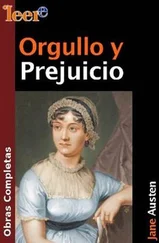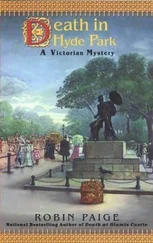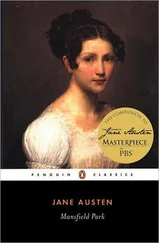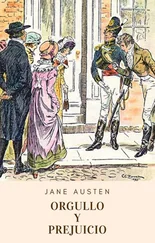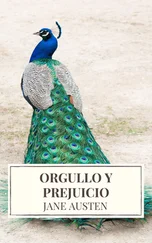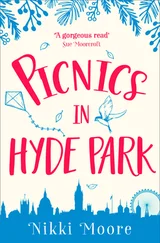John Ashton - Hyde Park from Domesday-book to Date
Здесь есть возможность читать онлайн «John Ashton - Hyde Park from Domesday-book to Date» — ознакомительный отрывок электронной книги совершенно бесплатно, а после прочтения отрывка купить полную версию. В некоторых случаях можно слушать аудио, скачать через торрент в формате fb2 и присутствует краткое содержание. Жанр: foreign_antique, foreign_prose, на английском языке. Описание произведения, (предисловие) а так же отзывы посетителей доступны на портале библиотеки ЛибКат.
- Название:Hyde Park from Domesday-book to Date
- Автор:
- Жанр:
- Год:неизвестен
- ISBN:нет данных
- Рейтинг книги:3 / 5. Голосов: 1
-
Избранное:Добавить в избранное
- Отзывы:
-
Ваша оценка:
- 60
- 1
- 2
- 3
- 4
- 5
Hyde Park from Domesday-book to Date: краткое содержание, описание и аннотация
Предлагаем к чтению аннотацию, описание, краткое содержание или предисловие (зависит от того, что написал сам автор книги «Hyde Park from Domesday-book to Date»). Если вы не нашли необходимую информацию о книге — напишите в комментариях, мы постараемся отыскать её.
Hyde Park from Domesday-book to Date — читать онлайн ознакомительный отрывок
Ниже представлен текст книги, разбитый по страницам. Система сохранения места последней прочитанной страницы, позволяет с удобством читать онлайн бесплатно книгу «Hyde Park from Domesday-book to Date», без необходимости каждый раз заново искать на чём Вы остановились. Поставьте закладку, и сможете в любой момент перейти на страницу, на которой закончили чтение.
Интервал:
Закладка:
La. Mal. O law! don’t profane Hide-Park: Is there anything so pleasant as to go there alone, and find fault with the Company? Why, there can’t a Horse or a Livery ’scape a Man, that has a mind to be witty. And then I sell bargains to the Orange Women.
CHAPTER IV
Foot and horse racing in the Park – Prize fighting – Duelling – The duel between Lord Mohun and the Duke of Hamilton.
Then, also, there were races run in the Park, both horse, coach and foot. In Shirley’s Hide Parke we read, —
L. Bonavent. Be there any races here?
Mr. Lacy. Yes, Sir, horse and foot.
Mistress Bon. Prethee, sweetheart, who runnes?
La. An Irish and an English footeman!
M. Bon. Will they runne this way?
La. Just before you, I must have a bet!
[Exit.M. Bon. Nay, nay, you shall not leave me.
Mistress Carroll. Do it discreetely, I must speak to him,
To ease my heart. I shall burst else.
Weele expect ’em here, Cousen, do they runne naked?
M. Bon. That were a most immodest sight.
M. Ca. Here have bin such fellowes, Cousen.
M. Bon. It would fright the women!
M. Ca. Some are of opinion it brings us hither.
Harke what a confusion of tongues there is.
Let you and I venture a paire of Gloves
Upon their feete; I’le take the Irish.
M. Bon. ’Tis done, but you shall pay if you lose.
M. Ca. Here’s my hand, you shall have the Gloves if you winne.
M. Bon. I thinke they are started.
Omnes. A Teag, A Teag, make way for shame.
La. I hold any man forty peeces yet.
Venture. A hundred pound to ten! a hundred peeces to ten!
Will no man take me?
M. Bon. I hold you, Sir.
Ven. Well, you shall see. A Teag! a Teag! hey!
Tryer. Ha! Well run, Irish!
Bon. He may be in a Bogge anon.
[Exeunt.The horse race is thus described.
I. What dost thinke, Jockey ?
II. The crack o’ th’ field against you.
Jo. Let them crack nuts.
I. What weighte?
II. I think he has the heeles.
III. Get but the start.
Jo. However, if I get within his quarters, let me alone.
[Exeunt.M. Ca. They are started.
Ri. Twenty pounds to fifteene.
L. Bon. ’Tis done we’e.
Fa. Forty pounds to thirty.
L. Bon. Done, done, Ile take all oddes.
Tr. My Lord, I hold as much.
L. Bon. Not so.
Tr. Forty pounds to twenty.
L. Bon. Done, done.
M. Bon. You ha’ lost all, my Lord, and it were a Million.
L. Bon. In your imagination, who can helpe it?
La. Venture had the start, and keepes it.
L. Bon. Gentlemen, you have a fine time to triumph,
’Tis not your oddes that makes you win.
Within — Venture! Venture!
[Exeunt Men.Julietta. Shall we venture nothing o’ th’ horses?
What oddes against my Lord?
M. Ca. Silke stockings.
Ju. To a paire of perfum’d gloves, I take it.
M. Ca. Done!
M. Bon. And I as much.
Ju. Done with you both!
M. Ca. Ile have em Spanish sent.
Ju. The stockings shall be scarlet, if you choose
Your sent, Ile choose my sent.
M. Ca. ’Tis done, if Venture
Knew but my lay, it would halfe breake his necke now,
And crying A Jockey! hay!
[A shoute within.Ju. Is the wind in that coast, harke the noyse.
Is Jockey now?
M. Ca. ’Tis but a paire of gloves.
Ju. Still it holds.
[Enter My Lord.How ha’ you sped, my Lord?
L. Bon. Won, Won, I knew by instinct
The mare would put some tricke upon him.
M. Bon. Then we ha’ lost; but, good my Lord, the circumstance.
L. Bon.
L. Bon. Great John at all adventure and grave Jockey
Mounted their severall Mares, I sha’not tell
The story out for laughing, ha, ha, ha,
But this in briefe; Jockey was left behind,
The pitty and the scorne of all the oddes,
Plaid ’bout my eares like Cannon, but lesse dangerous,
I looke all still: the acclamations was
For Venture , whose disdainful Mare threw durt
In my old Jockey’s face, all hopes forsaking us,
Two hundred peeces desperate, and two thousand
Oathes sent after them: upon the suddaine,
When we expected no such tricke, we saw
My rider, that was domineering ripe,
Vault ore his Mare into a tender slough,
Where he was much beholding to one shoulder
For saving of his necke; his beast recovered,
And he, by this time, somewhat mortified,
Besides mortified, hath left the triumph
To his Olympick Adversary, who shall
Ride hither in full pompe on his Bucephalus ,
With his victorious bagpipe.
These pedestrian races between “Running footmen” seem to have been common in Hyde Park, as Pepys notes under date August 10, 1660. “With Mr. Moore and Creed to Hyde Park by Coach, and saw a fine foot race three times round the Park, between an Irishman and Crow, that was once my Lord Claypole’s footman.” And for another instance of horse-racing in the Park we can find one in the comedy of The Mulberry Garden , by Sir Charles Sedley (1668), where, in Act I. Scene 2, Ned Estridge, speaking of Sir John Everyoung, says, “ ’Tis a pleasant old fellow. He has given me a hundred pounds for my Graybeard , and is to ride himself, this day month, twice round the Park, against a bay stone horse of Wildishe’s , for two hundred more.” Whilst for a different kind of race we have the testimony of Evelyn, who says: “May 20th, 1658. I went to see a coach race in Hide Park, and collationed in Spring Garden.” In The Merry Life and mad Exploits of Captain James Hind, The great Robber of England , a noted highwayman temp. Charles II., is a story of “How Hind robbed a Gentleman in Hide Park of a Bag of Money. Hind being well mounted, went one Evening into Hide Park , to see some Sport, and riding by a Gentleman’s Coach, espied a Bag of Money, upon which Hind used some Discourse about the Race that was going to be run; but the Race beginning, the Gentleman caused his Coach to stand still, that he might the easier judge which of the Horses run best. Hind’s head not being idle, rode close to the Coach side, took the Bag of Money in his hands, and rode away with it. The Gentleman presently missing his Bag of Money, cries out, Stay him, Stay him, I am robbed . Many rode after him, especially the Captain whom he robbed at Chalk Hill , who pursued him very hard. Hind riding by St. James’s , said to the Soldiers, I have won the Wager ; but holding of the Bag fast, his Cloak fell off, which he left for them that came next. But when he came to his companions, he said, I never earned a hundred pounds so dear in all my life .”
Larwood says that foot-racing was carried on till early in the present century, and gives instances down to 1807; the only one I am at all able to verify was one run by two boys on 5th March, 1807 – when one dropped down dead — but that race was run in St. James’s Park .
In the somewhat brutal days of George III. (which brutality has descended to our own times) the Park was disgraced by prize-fights, and several duels were fought there, although the place was not so private as Wimbledon Common, Putney, or Kensington Gravel Pits. One of the favourite places in the Park for these encounters was near the Cheesecake House, or Price’s Lodge, for it was there that the celebrated duel between Lord Mohun and the Duke of Hamilton took place in 1712, and it certainly retained its position till 1751, when Fielding wrote Amelia , where Colonel Bath and Booth meeting in St. James’s Park, the Colonel says, “ ‘I will tell you therefore, Sir, that you have acted like a Scoundrel.’ – ‘If we were not in the Park,’ answered Booth warmly, ‘I would thank you very properly for that Compliment.’ – ‘O Sir!’ cries the Colonel, ‘we can soon be in a convenient place.’ Upon which Booth answered he would attend him wherever he pleased. – The Colonel then bid him come along, and strutted forward directly up Constitution Hill to Hyde Park , Booth following him at first, and afterwards walking before him, till they came to that Place which may be properly called the Field of Blood, being that part a little to the Left of the Ring, which Heroes have chosen for the Scene of their Exit out of this World.” Booth ran the Colonel through the body, without seriously injuring him, and a reconciliation took place, ending, “ ‘I bleed a little, but I can walk to the house by the water, ( the Cheesecake House ) and, if you will send me a Chair thither, I shall be obliged to you.’ ” 25 25 Amelia , by Hy. Fielding, ed. 1752. Book 5, ch. vi. p. 132.
Интервал:
Закладка:
Похожие книги на «Hyde Park from Domesday-book to Date»
Представляем Вашему вниманию похожие книги на «Hyde Park from Domesday-book to Date» списком для выбора. Мы отобрали схожую по названию и смыслу литературу в надежде предоставить читателям больше вариантов отыскать новые, интересные, ещё непрочитанные произведения.
Обсуждение, отзывы о книге «Hyde Park from Domesday-book to Date» и просто собственные мнения читателей. Оставьте ваши комментарии, напишите, что Вы думаете о произведении, его смысле или главных героях. Укажите что конкретно понравилось, а что нет, и почему Вы так считаете.

